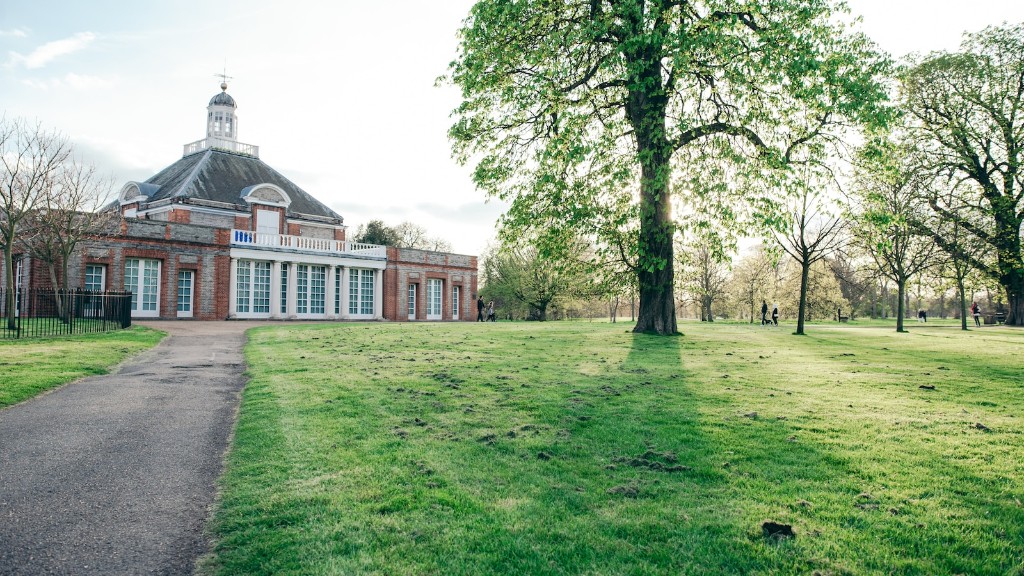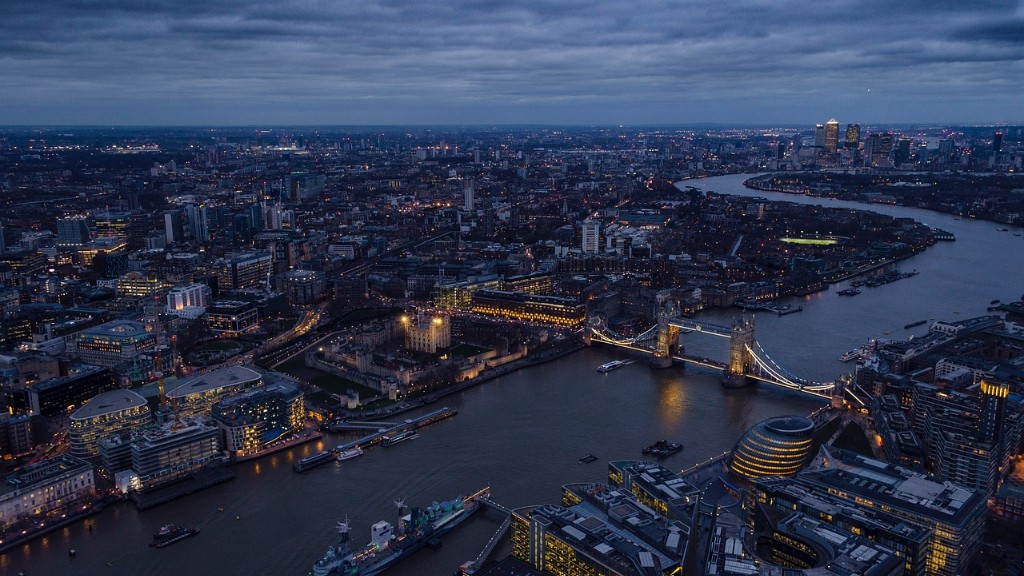Queen Victoria was the longest-reigning monarch in British history, reigning from 1837 until her death in 1901. Her reign saw the rise of some of the most prosperous and powerful countries in the world; the Industrial Revolution, the colonization of the world, and the dawn of the modern era. Despite all these accomplishments, one of Queen Victoria’s most important and visible legacies was the suppression of a republican movement in Great Britain. This article will analyze the reasons why Queen Victoria was able to quell the republican movement in Great Britain and the implications it had on the nation’s politics and culture.
In the late 18th and early 19th centuries, Great Britain was a constitutional monarchy, where the king or queen could veto or approve laws approved by Parliament. The British government had a history of trying to limit the power of the monarchy, though the monarchy remained fairly popular among the public. During her reign, Queen Victoria took a number of steps to try to ensure the survival of the monarchy, including trying to make the public more supportive of the monarchy.
One of the most important measures taken by Queen Victoria to preserve the monarchy was her suppression of the republican movement. The republican movement was a grassroots movement that sought to replace the monarchy with an elected head of state. The movement had gained some popularity in the late 18th century and early 19th century due to dissatisfaction with the monarchy, including its perceived corruption and elitism.
Queen Victoria was able to quell the republican movement by appealing to the British public with a message of stability and continuity. She was an immensely popular figure, and her presence was seen as a symbol of stability and tradition. Queen Victoria was also seen as a symbol of progress, with her reign ushering in a time of great economic, social, and technological advancement. In addition, Queen Victoria was a staunch defender of the monarchy, and she spoke out against the republican movement in a number of public statements.
The success of Queen Victoria’s efforts to suppress the republican movement had a number of far-reaching implications. For one, it helped ensure the survival of the monarchy, which lasted until Queen Elizabeth II abdicated in 1952. In addition, it also helped shape British culture and politics in the 20th century, as republicanism was largely a forgotten movement by the time the monarchy was abolished. Finally, it established the precedent that the monarchy could not be challenged by its citizens, and established the idea that the monarch had a special place in the British political system.
Impact of the Republican Suppression on Politics
The success of Queen Victoria in suppressing the republican movement had a lasting impact on British politics. Republicanism declined significantly following Queen Victoria’s reign, and the issue was largely absent from political debates for the remainder of the 19th century. Moreover, Queen Victoria’s efforts to strengthen the monarchy helped established the idea that the monarchy had a special place in the British political system, and that it could not be challenged by its citizens. This helped ensure that the monarchy remained, and was not replaced by a republican alternative.
Queen Victoria’s efforts to strengthen the monarchy had a profound effect on the political discourse in Britain during the 20th century. The monarchy was seen as an institution that could unite the nation, and there was little to no support for the idea of replacing it with an elected head of state. This helped ensure the continuation of the monarchy in Britain until Elizabeth II abdicated in 1952. It also helped set the tone for political discourse in the 20th century, in which issues of reform and change were discussed, but notions of abolishing the monarchy were largely absent from the conversation.
In addition, Queen Victoria’s efforts to strengthen the monarchy and suppress the republican movement had a strong impact on British culture. The monarchy was seen as a symbol of stability and tradition, and its continued presence in Britain helped to create a sense of national identity and pride. Moreover, the monarchy was seen as a unifying force in a nation that was increasingly divided along class and economic lines.
Finally, it is worth noting that Queen Victoria’s success in suppressing the republican movement did not go without criticism. Some argued that the monarchy was a symbol of elitism and corruption, and that it was not in the best interest of the British people to have an unelected head of state. Others argued that it was wrong to deny the British people the right to choose their own leader. Despite these criticisms, however, Queen Victoria’s efforts to strengthen the monarchy were largely successful and had lasting implications for the nation’s politics and culture.
Queen Victoria’s Legacy
In addition to quelling the republican movement, Queen Victoria left a lasting legacy on Great Britain. During her reign, she presided over a period of great economic, social, and technological advancement, helped to establish the idea of constitutional monarchy, and helped to establish the modern conception of the British monarchy. Furthermore, she was beloved by her people and seen as a symbol of continuity during a period of great transformation in Britain.
Queen Victoria’s legacy is still felt in Britain today, as the monarch remains popular among the British public. Even those who do not support the monarchy often view it as a symbol of tradition and continuity, and many celebrate the monarchy’s contributions to the nation. Furthermore, while the republican movement is still alive and well, it has yet to gain any major success or traction, largely due to Queen Victoria’s efforts to suppress it in the 19th century.
Finally, Queen Victoria’s legacy is also felt in the wider world. The British monarchy has become a powerful symbol, with other nations looking to Britain as a model for establishing their own constitutional monarchies. Queen Victoria’s efforts to quell the republican movement in Britain helped to shape the perception of monarchy as an institution, and to this day the British monarchy is celebrated by citizens and tourists alike.
The Importance of Queen Victoria’s Legacy
Queen Victoria’s legacy still resonates today, both in Britain and around the world. Her efforts to strengthen the monarchy and quell the republican movement were instrumental in shaping Britain’s political culture and discourse for the next hundred years. Moreover, her legacy also shaped the perception of monarchy in the wider world, and her reign helped to establish the modern conception of the British monarchy as a symbol of continuity and tradition.
Queen Victoria’s efforts to strengthen and preserve the monarchy were also incredibly important for her nation. During her reign, Britain was going through a period of great transformation, and the stability of the monarchy was seen as a source of comfort and continuity; her efforts helped maintain public unity and confidence during this period. In addition, the survival and popularity of the monarchy until the 1950s helped to ensure the survival of the institution and to prevent fragmentation and political instability.
Finally, it is important to note that while Queen Victoria’s efforts to strengthen the monarchy had many positive effects, they also had some negative effects. In particular, her efforts helped to further entrench the position of the monarchy in British politics and to limit public participation in the decision-making process. Nevertheless, her legacy still resonates today, and her efforts to quell the republican movement in Great Britain are often cited as a key factor in preserving the monarchy.
Conclusion
Queen Victoria’s efforts to quell the republican movement in Great Britain had a profound impact on British politics and culture. Her efforts to strengthen the monarchy and her popular appeal helped ensure the survival of the monarchy until 1952 and shaped the perception of monarchy as an institution. In addition, her legacy shaped the perception of the monarchy in the wider world, and helped to establish the modern conception of the British monarchy as a symbol of stability, continuity, and tradition. Therefore, Queen Victoria’s legacy is still felt today, and her efforts to preserve the monarchy are an important part of British history.




